Research Network
The 492 labs and institutions that form the Research Network are committed to working together towards realising the vision: European excellence across all of AI, for all of Europe, with a human-centred focus.
Over 27,000 people work for the groups and institutions that form the Research Network in 41 countries (properly accounting for overlap between groups).
Membership
Collectively, we create the world‘s largest AI research network of labs and institutions committed to working together towards developing European sovereignty in trustworthy AI.
Do not miss the opportunity to
Gain access to the largest AI community in the world
Network within topic-specific Special Interest Groups and Task Forces
Stay informed about latest AI research, events, and opportunities
Connect with partners in academia and industry
Member Benefits
- Full voting rights;
- Adra discount;
- Promotion and increased visibility on our social media platforms (LinkedIn, X, Facebook, Mattermost) and website;
- Dedicated articles and event promotion in the quarterly newsletter and events updates,
- Priority access to participate and co-organise events together, such as All Questions Answered (AQuAs) and Theme Development Workshops (TDW);
- Additional networking and matchmaking opportunities, through increased access to supporting organisations and collaborating projects;
- Increased inclusion in consultation processes and input regarding European and national AI initiatives;
- Increased opportunity for support for, and participation in, project proposals led by or strongly involving the gold member.
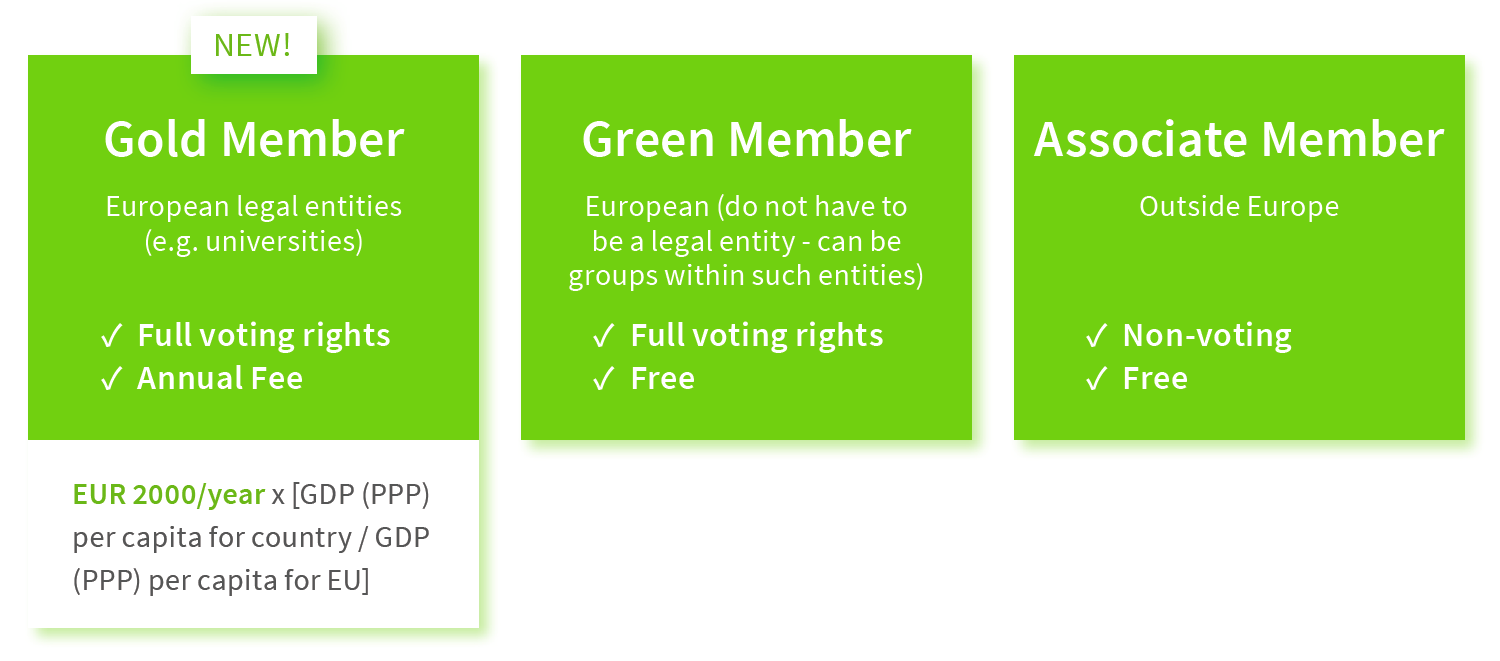
To join the CAIRNE Research Network, first sign your support for CAIRNE, and then contact us at network@cairne.eu to request the application form.
To apply, we require that the lab, research group or institution be part of a not-for profit organisation that conducts research in AI, and regularly publishes that research, and have its own working website (not that of a larger entity of which it is part).
For for-profit organisations please see the page on the Innovation Network.
Gold Members
Belgium

VUB – Vrije Universiteit Brussel (VUB), Brussels (contact: Hans de Canck)
Website: https://www.vub.be/en
- FARI AI for the Common Institute Brussels, Brussels (contact: Hans de Canck) (also in ULB)
- Artificial Intelligence Lab, VUB (contact: Ann Nowe)
- BruBotics Human Robotics Research Center, VUB (contact: Bram Vanderborght)
- ETRO Electronics & Informatics, VUB (contact: Adrian Munteanu)
- SMIT (Studies in Media, Innovation, and Technology), VUB (contact: Pieter Ballon)
- LSTS – Law, Science, Technology, and Society, VUB (contact: Mireille Hildebrandt / Gloria Gonzales Fuster)
ULB – Université Libre de Bruxelles (ULB), Brussels (contact: Carl Morch
Website: https://www.ulb.be/en
- FARI AI for the Common Institute Brussels, Brussels, Belgium (contact: Hans de Canck) (also in VUB)
- IRIDIA, ULB (contact: Hugues Bersini)
- Machine Learning Group, ULB (contact: Tom Lenaerts / Gianluca Bontempi)
- SAAS (Department of Control Engineering and System Analysis), ULB (contact: Emanuele Garone)
- Centre Perelman, ULB (contact: Gregory Lewkowicz)
- Solvay Brussels School Economics & Management, ULB (contact: Nicolas van Zeebroeck)
Czech Republic

CIIRC – Czech Institute of Informatics, Robotics and Cybernetics, Czech Technical University, Prague (contact: Josef Urban)
Website: https://www.ciirc.cvut.cz/
- Automated Reasoning Group (contact: Josef Urban)
France
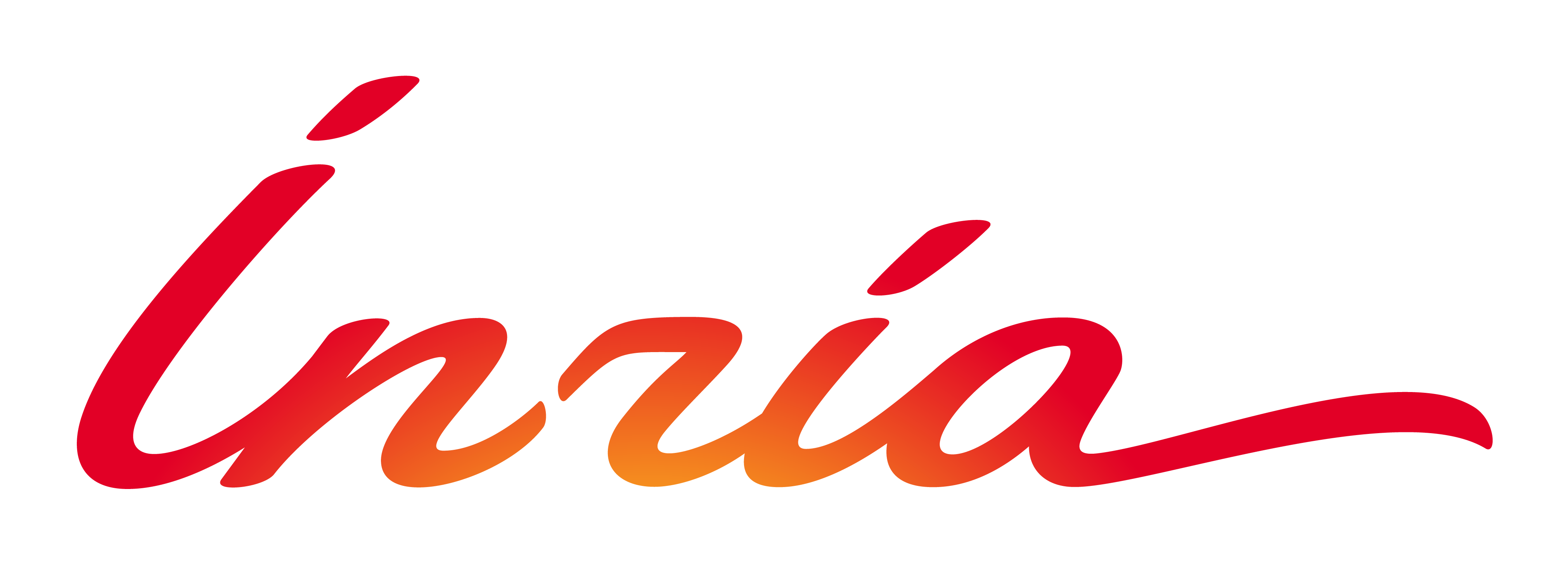
Inria – French Institute for Research in Computer Science and Automation, Le Chesnay (contact: Marie-Helene Pautrat)
Website: https://www.inria.fr/en
- LIFEWARE group, Inria Saclay Ile de France, Palaiseau (contact: François Fages)
- MALT, Inria, Rennes (contact: Elisa Fromont)
- mOeX, INRIA & Univ. Grenoble Alpes, Grenoble (contact: Jérôme Euzenat)
- Modal project-team, Inria, Lille (contact: Benjamin Guedj)
- PRIVATICS, INRIA, Sophia Antipolis (contact: Cristiana Santos)
- TAU / A&O, INRIA, CNRS and Université Paris-Sud, Orsay (contact: Marc Schoenauer and Michèle Sebag)
Germany

L3S Research Center, Leibniz Universität, Hannover (contact: Wolfgang Nejdl)
Website: https://www.L3S.de

Center for Artificial Intelligence – RWTH Aachen University, Aachen (contact: Julia Mann)
Website: www.ai.rwth-aachen.de
- Chair of Process and Data Science (PADS) (contact: Wil van der Aalst)
- Computer Vision Group (CVG) (contact: Bastian Leibe)
- Knowledge-Based Systems Group (KBSG) (contact: Gerhard Lakemeyer)
- Institute for Data Science in Mechanical Engineering (DSME) (contact: Sebastian Trimpe)
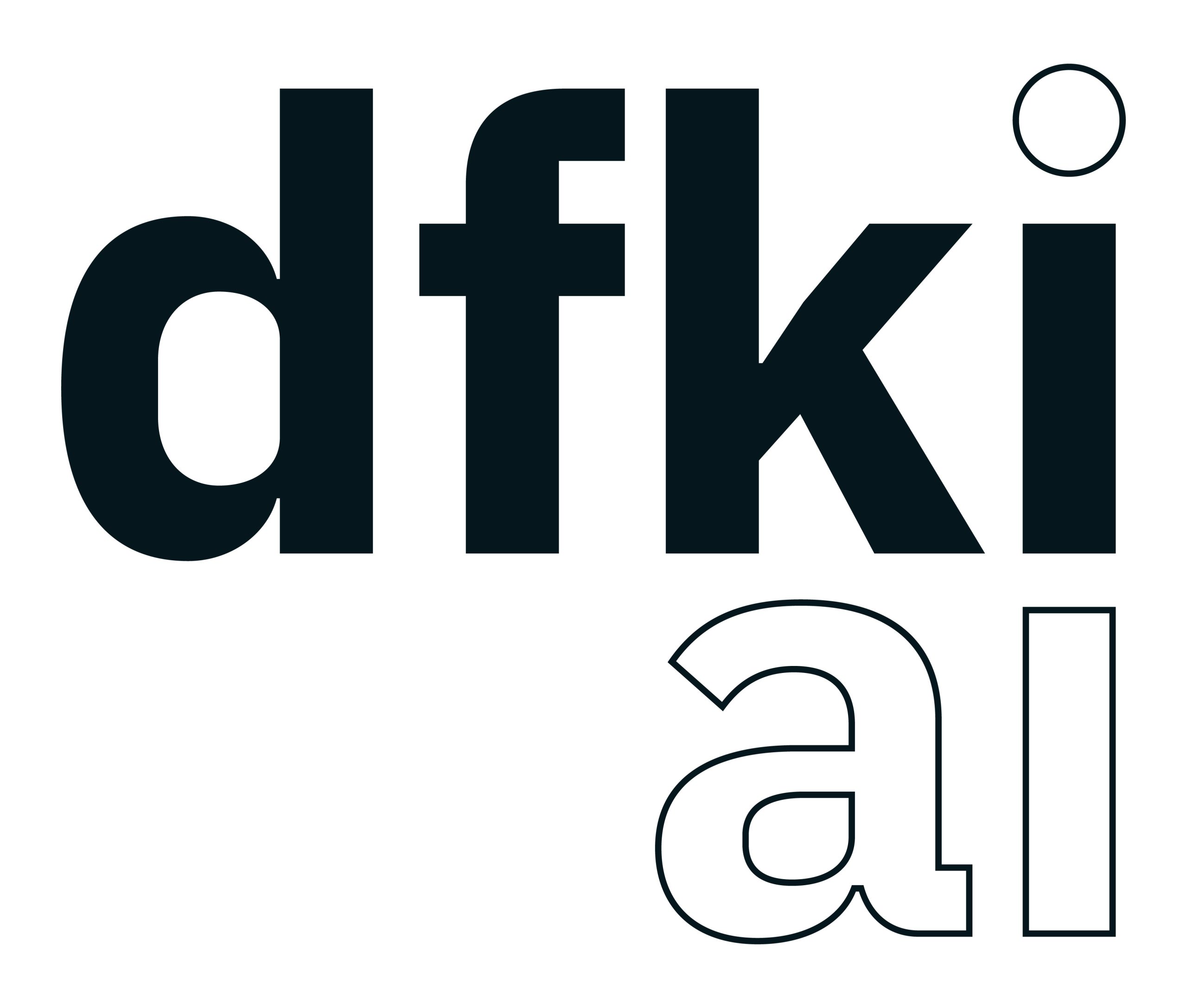
DFKI – German Research Center for Artificial Intelligence, Kaiserslautern (Headquarters) (contact: Philipp Slusallek)
Website: https://www.dfki.de/en/web
- Agents and Simulated Reality, Saabrücken (contact: Philipp Slusallek)
- Intelligent Networks, Kaiserslautern (contact: Hans D. Schotten)
- Multilinguality and Language Technology, Kaiserslautern (contact: Josef van Genabith)
- Plan-Based Robot Control, Osnabrück (contact: Joachim Hertzberg)
- Robotics Innovation Center, Bremen (contact: Frank Kirchner)
- Smart Data and Knowledge Services, Kaiserslautern (contact: Andreas Dengel)
- Smart Service Engineering, Saarbrücken (contact: Wolfgang Maaß)
- Speech and Language Technology, Berlin (contact: Sebastian Möller)
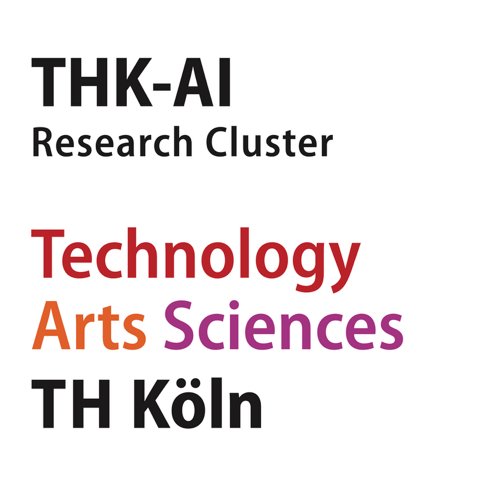
THK-AI Forschungscluster, TH Köln, Köln Germany (contact: Thomas Bartz-Beielstein)
Website: https://thk-ai.de

Hessian-AI – The Hessian Center for Artificial Intelligence, Darmstadt (contact: Wolfgang Heenes)
Website: https://hessian.ai/
Italy

Sapienza University of Rome, Rome (contact: Domenico Lembo)
Website: https://www.uniroma1.it/en
- DIAG – Department of Computer, Control, and Management Engineering (contact: Giuseppe De Giacomo)
- Artificial Intelligence and Knowledge Representation (contact: Maurizio Lenzerini)
- LabRoCoCo – Laboratory Artificial Intelligence and Robotics (contact: Daniele Nardi)
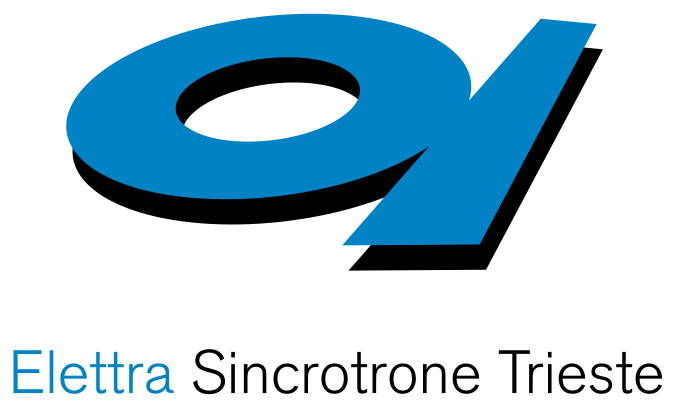
IT Group of Elettra Sincrotrone Trieste, Trieste (contact: Roberto Pugliese)
Website: www.elettra.eu
Norway
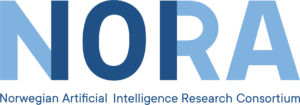
NORA – Norwegian Artificial Intelligence Research Consortium, Oslo (contact: Pinar Heggernes)
Website: https://www.nora.ai/
- IAI research group, University of Stavanger, Stavanger (contact: Krisztian Balog)
- Center for Modeling Social Systems, NORCE Norwegian Research Centre, Kristiansand (contact: F. LeRon Shults)
- CAIR – Centre for Artificial Intelligence Research, University of Agder, Grimstad (contact: Ole-Christoffer Granmo)
- CAI – Computational Analytics and Intelligence research group, The Arctic University of Norway (UiT), Tromso (contact: Phuong H. Ha)
- Machine Intelligence Department, Simula Metropolitan, Simula Research Laboratory, Oslo (contact: Sven-Arne Reinemo, Olav Lysne)
- OsloMet AI Lab, Oslo Metropolitan University, Oslo (contact: Stefano Nichele)
- Robotics and Intelligent Systems, University of Oslo, Oslo (contact: Jim Torresen)
- Smart Instrumentation and Industrial Testing Group, Technology Department, NORCE Norwegian Research Centre, Bergen (contact: Ahmed Nabil Belbachir)
The Netherlands

Leiden Institute of Advanced Computer Science, Leiden University, Leiden (contact: Joost Batenburg)
Website: https://liacs.leidenuniv.nl/
- ADA Research Group (contact: Holger Hoos)
- Computational Drug Discovery (contact: Gerard JP van Westen)
- EDA research group (contact: Matthijs van Leeuwen)
- LCDS-Data Science Research Programme (contact: Wessel Kraaij)
- LERC – Leiden Embedded Research Center (contact: Todor Stefanov)
- LIACS Reinforcement Learning Group (contact: Aske Plaat)
- Natural Computing Group (contact: Thomas Bäck)
Portugal
LASI – Intelligent Systems Associate Laboratory, Universidade do Minho – Centro ALGORITMI, Guimarães (contact: Paulo Novais)
Website: https://lasi-research.pt/
- 2Ai-Applied Artificial Intelligence Laboratory, Polytechnic University of Cávado and Ave, Barcelos (contact: João Vilaca)
- CTS – Center of Technology and Systems, NOVA University Lisbon, Monte Caparica (contact: Luis Camarinha-Matos)
- IEETA – Institute of Electronics and Informatics Engineering of Aveiro, University of Aveiro, Aveiro (contact: José Luis Oliveira)
- LIACC – Artificial Intelligence and Computer Science Laboratory, University of Porto, Porto (contact: Luis Paulo Reis)
- UNIDEMI – Research & Development Unit for Mechanical and Industrial Engineering, Universidade NOVA de Lisboa, Caparica (contact: Helena Carvalho)
Sweden

Linköping University, Linköping (contact: Fredrik Heintz)
Website: https://liu.se/en
- Artificial Intelligence and Integrated Computer Systems Division (contact: Patrick Doherty)
- Natural Language Processing Laboratory (contact: Marco Kuhlmann)
Switzerland
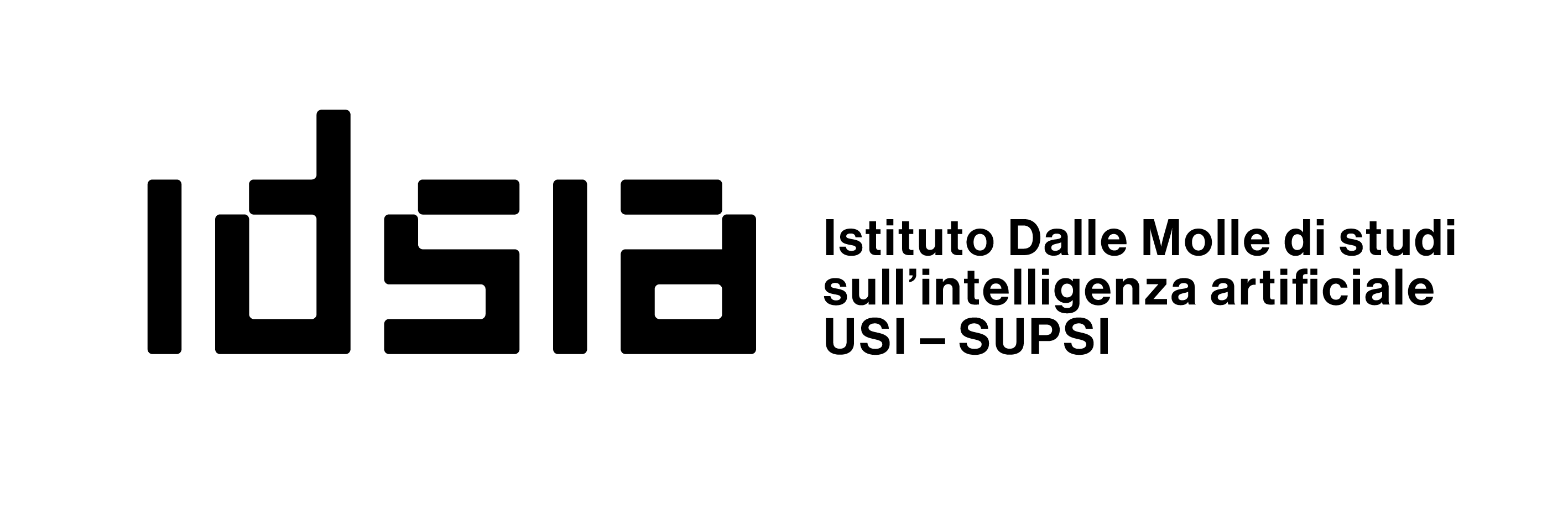
idsia – Dalle Molle Institute for Artificial Intelligence, Manno-Lugano (contact: Andrea Emilio Rizzoli)
Website: http://www.idsia.ch/

ZHAW – Zurich University of Applied Sciences, Zurich (contact: Ricardo Chavarriaga)
Website: https://www.zhaw.ch/en/university/
- FRME-IDP, Winterthur (contact: Joerg Osterrieder)
- InIT – Institute of Applied Information Technology, Zurich (contact: Marc Rennhard)
- Institute for Wealth and Asset Management (IWA), School of Management and Law, Winterthur (contact: Peter Schwendner)
- Institute of Business Information Technology (IWI), School of Management and Law, Winterthur (contact: Elena Gavagnin)
- ZHAW Centre for Artificial Intelligence, Winterthur (contact: Thilo Stadelmann)
Green Members
Austria:
- Center for Digital Safety & Security, AIT – Austrian Institute of Technology, Vienna (contact: Pedro Casas)
- Control of Networked Systems Group, Universität Klagenfurt, Department of Smart System Technologies, Klagenfurt (contact: Jan Steinbrener)
- Department of Applied Informatics, Alpen-Adria-Universität Klagenfurt, Klagenfurt (contact: Wolfgang Faber)
- DIGITAL – Institute for Information and Communication Technologies, JOANNEUM RESEARCH, Graz (contact: Heinz Mayer)
- Inst. for Computer Graphics and Vision, Graz University of Technology, Graz (contact: Horst Bischof)
- Institute for Formal Models and Verification, Johannes Kepler University, Linz (contact: Martina Seidl)
- Institute of Computational Perception, Johannes Kepler University Linz, Linz (contact: Gerhard Widmer)
- Institute of Logic and Computation, Technische Universität Wien, Vienna (contact: Thomas Eiter)
- DBAI – Databases and Artificial Intelligence Group (contact: Stefan Woltran)
- Knowledge-Based Systems Group (contact: Thomas Eiter)
- Know-Center Gmbh – Research Center for Data-driven Business and Big Data Analytics, Graz (contact: Stefanie Lindstaedt)
- Institute for Interactive Systems and Data Science, Graz University of Technology & Know-Center (contact: Stefanie Lindstaedt)
- Privacy and Sustainable Computing Lab/Institute for Information Business, Vienna University of Economics and Business, Vienna (contact: Axel Polleres)
- Pro2Future – Competence Centre for Products and Production Systems of the Future, Linz (contact: Alois Ferscha)
- Research Group Data Mining, Faculty of Computer Science, Data Science @ Uni Vienna, Vienna (contact: Claudia Plant)
- Research Group for Heuristic and Evolutionary Algorithms (HEAL), University of Applied Sciences Upper Austria, Hagenberg (contact: Michael Affenzeller)
- Section for Artificial Intelligence & Decision Support, Medical University of Vienna, Vienna (contact: Georg Dorffner)
- Software Competence Center Hagenberg (SCCH), Hagenberg (contact: Bernhard A. Moser)
- VRVis Zentrum für Virtual Reality und Visualisierung Forschungs-GmbH, Wien (contact: Katja Bühler)
Belgium:
- In Gold Member VUB – Vrije Universiteit Brussel (VUB), Brussels, Belgium (contact: Hans de Canck)
- FARI AI for the Common Institute Brussels (contact: Hans de Canck) (also in ULB)
- Artificial Intelligence Lab (contact: Ann Nowe)
- BruBotics Human Robotics Research Center (contact: Bram Vanderborght)
- ETRO Electronics & Informatics (contact: Adrian Munteanu)
- SMIT (Studies in Media, Innovation, and Technology) (contact: Pieter Ballon)
- LSTS – Law, Science, Technology, and Society (contact: Mireille Hildebrandt)
- In Gold Member ULB – Université Libre de Bruxelles (ULB), Brussels, Belgium (contact: Carl Morch
- FARI AI for the Common Institute Brussels (contact: Hans de Canck) (also in VUB)
- IRIDIA (contact: Hugues Bersini)
- Machine Learning Group (contact: Tom Lenaerts/ Gianluca Bontempi)
- SAAS (Department of Control Engineering and System Analysis) (contact: Emanuele Garone)
- Centre Perelman (contact: Gregory Lewkowicz)
- Solvay Brussels School Economics & Management (contact: Nicolas van Zeebroeck)
- BeCool and Machine Learning Group, ICTEAM, UCLouvain, Louvain-la-Neuve (contact: Siegfried Nijssen)
- Beyond the Horizon International Strategic Studies Group, Brussels (contact: Hasan Suzen)
- Business Informatics research group @ Hasselt University, Hasselt University, Hasselt (contact: Benoît Depaire)
- CLiPS Computational Linguistics Group, University of Antwerp, Antwerp (contact: Walter Daelemans)
- Data Science Institute, Hasselt University, Diepenbeek (contact: Sasan Amini)
- Department of Computer Science, KU Leuven, Leuven (contact: Hendrik Blockeel)
- Lab for Declarative Languages and Artificial Intelligence (contact: Luc De Raedt)
- EAVISE (Vision — AI — Embedded), KU Leuven, Sint-Katelijne-Waver (contact: Joost Vennekens)
- IMEC, Leuven (contact: Stefan Van Baelen)
- MONA, VITO, Mol (contact: Bart Elen)
- UGent.ai, Ghent University, Ghent (contact: Tijl De Bie, Piet Demeester)
- IDLab, Ghent University – IMEC, Ghent (contact: Philip Leroux) (also in IMEC)
Bosnia and Herzegovina:
- Blum Institute, Sarajevo (contact: Rijana Jusufbegovic)
Bulgaria:
- Artificial Intelligence Laboratory, Technical University of Varna, Varna (contact: Todor Ganchev)
- Institute of Information and Communication Technologies, Bulgarian Academy of Sciences, Sofia (contact: Petia Koprinkova-Hristova)
Croatia:
- Center for Artificial Intelligence and Cybersecurity, University of Rijeka, Rijeka (contact: Jonatan Lerga)
Cyprus:
- Computational Cognition Lab, Open University of Cyprus, Nicosia (contact: Loizos Michael)
- Research Center on Interactive Media, Smart Systems, and Emerging Technologies, Nicosia (contact: Loizos Michael)
Czech Republic:
- Artificial Intelligence Research Network, Czech University of Life Sciences Prague, Praha – Suchdol (contact: Michael Haman)
- BUT Speech@FIT, Brno University of Technology, Brno (contact: Honza Cernocky)
- in Gold Member CIIRC – Czech Institute of Informatics, Robotics and Cybernetics, Czech Technical University, Prague (contact: Josef Urban)
- Automated Reasoning Group (contact: Josef Urban)
- The Czech Academy of Sciences, Institute of Computer Science (CAS ICS), Prague (contact: David M. Cerna)
- Department of Computer Science, Czech Technical University in Prague, Prague (contact: Jaroslav Sip)
- Institute of Formal and Applied Linguistics, Charles University, Prague (contact: Jan Hajič)
- UTIA – Pattern Recognition Dep., Institute of Information Theory and Automation (contact: Michal Haindl)
Denmark:
- Aalborg University Department of Computer Science, Aalborg University, Aalborg (contact: Manfred Jaeger)
- Copenhagen Natural Language Understanding Group, The University of Copenhagen, Copenhagen (contact: Isabelle Augenstein)
- Department of Mathematics and Computer Science, University of Southern Denmark, Odense (contact: Jacopo Mauro)
- The Maersk Mc-Kinney Moller Institute, University of Southern Denmark, Odense (contact: Anders Lyhne Christensen)
Finland:
- Artificial Intelligence and Software Systems, Aalto University, Department of Computer Science, Espoo (contact: Jussi Rintanen)
- Constraint Reasoning and Optimization Group, University of Helsinki, Helsinki (contact: Matti Järvisalo)
- Finnish Center for Artificial Intelligence, Aalto University / University of Helsinki / VTT Technical Research Center of Finland, Helsinki (contact: Petri Myllymäki)
- Multiobjective Optimization Group and DEMO Group, University of Jyvaskyla, Jyvaskyla (contact: Kaisa Miettinen)
- Institute of Information Technology, JAMK University of Applied Sciences, Jyväskylä (contact: Mika Rantonen)
- Turku School of Economics, University of Turku, Turku (contact: Kaisa Kukkonen)
France:
- in Gold Member Inria – French Institute for Research in Computer Science and Automation, Le Chesnay, France (contact: Marie-Helene Pautrat)
- LIFEWARE group, Inria Saclay Ile de France, Palaiseau (contact: François Fages)
- MALT, Inria, Rennes (contact: Elisa Fromont)
- mOeX, INRIA & Univ. Grenoble Alpes, Grenoble (contact: Jérôme Euzenat)
- Modal project-team, Inria, Lille (contact: Benjamin Guedj)
- PRIVATICS, INRIA, Sophia Antipolis (contact: Cristiana Santos)
- TAU / A&O, INRIA, CNRS and Université Paris-Sud, Orsay (contact: Marc Schoenauer and Michèle Sebag)
- AI-driven Business, Rennes School of Business, Rennes (contact: Michael Dowling)
- ANITI – Artificial and Natural Intelligence Toulouse, Université Fédérale Toulouse Midi-Pyrénées, Toulouse (contact: Nicholas Asher)
- Centre de Recherche en Informatique (CRI), Université Paris 1 Panthéon-Sorbonn, Paris (contact: Jacques Robin)
- CRIL – Centre de Recherche en Informatique de Lens, Artois University & CNRS, Lens (contact: Pierre Marquis)
- Heudiasyc Laboratory (Heuristic and Diagnostic for Complex Systems), University of Technology of Compiègne/French National Centre for Scientific Research, Compiègne (contact: Sébastien Destercke)
- IMGT®, the international ImMunoGeneTics information system®, University of Montpellier (UM) and French National Centre for Scientific Research (CNRS), Montpellier (contact: Sofia Kossida)
- IRISA, IRISA UMR 6074, Rennes (contact: Guillaume Gravier)
- IRIT – Institut de Recherche en Informatique de Toulouse, Univ. Toulouse CNRS, Toulouse (contact: Andreas Herzig)
- AI Department (contact: Andreas Herzig)
- ISIR – Institut des Systèmes Intelligents et de Robotique, Sorbonne Université, Paris (contact: Raja Chatila)
- KSILINK, Strasbourg (contact: Mona Boyé)
- LERIA – Laboratoire d’Etude et de de Recherche en Informatique d’Angers, Université d’Angers, Angers (contact: David Lesaint)
- LIMSI – Laboratoire d’Informatique pour la Mécanique et les Sciences de l’Ingénieur, CNRS Orsay France (contact: Nicolas Sabouret)
- CPU, LIMSI-CNRS, Univ. Paris-Sud, Univ. Paris-Saclay, Orsay (contact: Nicolas Sabouret)
- Laboratoire Hubert Curien, University Jean Monnet of Saint-Etienne / CNRS, Saint-Etienne (contact: Amaury Habrard)
- LAB-STICC, ENIB, Brest (contact: Cédric Buche)
- LAMSADE, Université Paris-Dauphine, Paris (contact: Jérôme Lang)
- LAAS, CNRS, Toulouse (contact: Rachid Alami)
- LIST3N – Computer Science and Digital Society, University of technology of Troyes, Troyes CEDEX (contact: Lionel Amodeo)
- LTSI UMR1099: Signal and Image Processing Laboratory, INSERM – Université de Rennes 1, Rennes (contact: Pierre Jannin)
- MIAI@Grenoble Alpes, Université Grenoble Alpes, Grenoble (contact: Eric Gaussier)
- LIG – Laboratoire d’Informatique de Grenoble, Univ. Grenoble Alpes, CNRS, Grenoble INP, Grenoble (contact: Marie-Christine Rousset)
- LIP6, Sorbonne University, Paris (contact: Cédric Herpson)
- LIRMM (pôle IA), University of Montpellier, Montpellier (contact: Christian Bessiere)
- LSIS – Laboratory for Sciences of information and Systems, Induction for Behavior Modeling (in4Be) Research Group, Aix Marseille University, Marseille (contact: Marc Le Goc)
- ORKAD Group, University of Lille, Lille (contact: Laetitia Jourdan)
- Research Centre for Automatic Control (CRAN UMR 7039), University of Lorraine, CNRS, Vandoeuvre-les-Nancy (contact: Hervé Panetto)
- SIAM team, IBISC lab, Université Paris-Saclay, Évry-Courcouronnes (contact: Vincent Vigneron)
Germany:
- in Gold Member DFKI – German Research Center for Artificial Intelligence, Kaiserslautern (Headquaters)(contact: Philipp Slusallek)
- Agents and Simulated Reality, Saabrücken (contact: Philipp Slusallek)
- Intelligent Networks, Kaiserslautern (contact: Hans D. Schotten)
- Multilinguality and Language Technology, Kaiserslautern (contact: Josef van Genabith)
- Plan-Based Robot Control, Osnabrück (contact: Joachim Hertzberg)
- Robotics Innovation Center, Bremen (contact: Frank Kirchner)
- Smart Data and Knowledge Services, Kaiserslautern (contact: Andreas Dengel)
- Smart Service Engineering, Saarbrücken (contact: Wolfgang Maaß)
- Speech and Language Technology, Berlin (contact: Sebastian Möller)
- AI.DA (AI at TU Darmstadt), TU Darmstadt, Darmstadt (contact: Kristian Kersting)
- AI & Society Lab, Alexander von Humboldt Institute for Internet and Society, Berlin (contact: Theresa Züger)
- AI Systems Engineering, University of Bamberg, Bamberg (contact: Christoph Benzmüller)
- Algorithm Engineering, Hasso Plattner Institute, Potsdam (contact: Tobias Friedrich)
- Applied Computational Linguistics: Discourse Research Lab, University of Potsdam, Potsdam (contact: Manfred Stede)
- Artificial General Intelligence Sentinel Initiative (AGISI), Belin (contact: Colin Lewis and Dagmar Monett) (also in Warsaw, Poland)
- Artificial Intelligence Lab, Otto von Guericke University Magdeburg, Magdeburg (contact: Sebastian Stober)
- Artificial Intelligence Research Group, Harz University of Applied Sciences, Wernigerode (contact: Frieder Stolzenburg)
- Autonomous Intelligent Systems, University of Freiburg, Freiburg (contact: Wolfram Burgard)
- Autonomous Intelligent Systems Lab, University of Bonn, Bonn (contact: Sven Behnke)
- Autonomous System, University of Applied Science Gelsenkirchen, Gelsenkirchen (contact: Hartmut Surmann)
- Bremen Spatial Cognition Center, University of Bremen, Bremen (contact: Christian Freksa)
- in Gold Member Center for Artificial Intelligence, RWTH Aachen University, Aachen (contact: Julia Mann)
- Chair of Process and Data Science (PADS) (contact: Wil van der Aalst)
- Computer Vision Group (CVG) (contact: Bastian Leibe)
- Knowledge-Based Systems Group (KBSG) (contact: Gerhard Lakemeyer)
- Institute for Data Science in Mechanical Engineering (DSME) (contact: Sebastian Trimpe)
- Center for Artificial Intelligence and Data Science (CAIDAS), Julius-Maximilians-Universität of Würzburg (JMU), Würzburg (contact: Andreas Hotho)
- Chair of Automata Theory, TU Dresden, Dresden (contact: Franz Baader)
- Chair of Information Systems and New Media, University of Siegen, Siegen (contact: Volker Wulf)
- Cognitive Systems Group, University of Bamberg, Bamberg (contact: Ute Schmid)
- colab Potsdam / foundations of computational linguistics, Department of Linguistics, University of Potsdam, Potsdam (contact: David Schlangen)
- Computational Logic Group, TU Dresden, Dresden (contact: Sebastian Rudolph)
- Computer Science Department, Saarland University, Saarbrücken (contact: Philipp Slusallek)
- Foundations of AI Research Group (contact: Jörg Hoffmann)
- Spoken Language Systems Group (contact: Dietrich Klakow)
- Chair for Clinical Bioinformatics (contact: Andreas Keller)
- Big Data Analytics Group (contact: Jens Dittrich)
- Computer Vision and Machine Learning Systems, University of Münster, Münster (contact: Benjamin Risse)
- Computer Vision Group, University of Freiburg, Freiburg (contact: Thomas Brox)
- Data-intensive Systems and Visualization Group (dAI.SY), Technische Universität Ilmenau, Ilmenau (contact: Patrick Mäder)
- Data & Knowledge Engineering Group, Heinrich-Heine-University, Düsseldorf (contact: Stefan Dietze)
- Decision and Operation Technologies, Bielefeld University, Bielefeld (contact: Kevin Tierney)
- Department of Informatics, Universität Hamburg, Hamburg (contact: Frank Steinicke)
- Engineering Department, Technical University Nuremberg, Nuremberg (contact: Wolfram Burgard)
- Fachgebiet Intellektik, Darmstadt University of Technology, Darmstadt (contact: Wolfgang Bibel)
- Fachgebiet Software Engineering, Technische Universität Darmstadt, Darmstadt (contact: Reiner Hähnle)
- Foundations of AI lab, Albert-Ludwigs-Universität, Freiburg (contact: Bernhard Nebel)
- Frankfurt Big Data Lab, Goethe University Frankfurt, Frankfurt/Main (contact: Roberto V. Zicari)
- Institute for Information, Telecommunications and Media Law (ITM), Westfälische Wilhelms-Universität Münster (University of Münster), Münster (contact: Thomas Hoeren)
- Helmholtz School for Data Science in Life, Earth and Energy (HDS-LEE), Forschungszentrum Jülich GmbH, Jülich (contact: Wolfgang Wiechert)
- Gold Member Hessian-AI – The Hessian Center for Artificial Intelligence, Darmstadt (contact: Wolfgang Heenes)
- Human-Centered Multimedia, Universität Augsburg, Augsburg (contact: Elisabeth André)
- Information Systems and Statistics Group, Department of Information Systems, University of Münster, Münster (contact: Prof. Dr. Heike Trautmann)
- Institute AIFB – Institute for Applied Informatics and Formal Description Models, Karlsruhe Institute of Technology (KIT), Karlsruhe (contact: York Sure-Vetter)
- Institute for Artificial Intelligence, University Bremen, Bremen (contact: AI-Office)
- Institute for Web Science and Technologies, Universität Koblenz-Landau, Koblenz (contact: Steffen Staab)
- Institute of AI, Leibniz University Hannover, Hannover (contact: Marius Lindauer)
- Institute of Computer Science, Freie Universität Berlin, Berlin (contact: Christoph Benzmüller)
- Dahlem Center for Machine Learning and Robotics (contact: Christoph Benzmüller and Raul Rojas)
- Institute of Information Processing (tnt), Leibniz University Hannover, Hannover (contact: Marius Lindauer)
- Institute of Information Systems, Hof University of Applied Sciences, Hof (contact: René Peinl)
- Institute of Neuroscience and Medicine (INM-7), Forschungszentrum Jülich GmbH, Jülich (contact: Simon B. Eickhoff)
- Institute of Software Technology, University of Stuttgart, Stuttgart (contact: Stefan Wagner)
- Institut für Neuroinformatik, Ruhr-Universität Bochum, Bochum (contact: Gregor Schöner)
- Optimization of Adaptive Systems Group (contact: Tobias Glasmachers)
- Intellectual property rights in distributed information infrastructures, FIZ Karlsruhe – Leibniz Institute for Information Infrastructure, Eggenstein-Leopoldshafen (contact: Dara Hallinan)
- Intelligent Systems Research Group, Leipzig University, Leipzig (contact: Gerhard Brewka)
- Knowledge-Based Systems group, Osnabrück University, Osnabrück (contact: Joachim Hertzberg)
- Knowledge creates² Data, University Regensburg, Regensburg (contact: Bernd Ludwig)
- Knowledge Technologies for the Social Sciences, GESIS – Leibniz Institute for the Social Sciences, Cologne (contact: Stefan Dietze)
- Gold Member L3S Research Center, Leibniz Universität Hannover, Hannover (contact: Wolfgang Nejdl)
- Lab for Computer Graphics and Virtual Reality, University of Bremen, Bremen (contact: Gabriel Zachmann)
- Lehrstuhl Informatik 6 – Human Language Technology and Pattern Recognition, RWTH Aachen University, Aachen (contact: Ralf Schlüter)
- Machine Learning & Robotics Lab, University of Stuttgart, Stuttgart (contact: Marc Toussaint)
- Machine Learning and Optimisation Group (MALEO), Paderborn University, Paderborn (contact: Heike Trautmann)
- Machine Learning Group, Bielefeld University, Bielefeld (contact: Barbara Hammer)
- Machine Learning Research Group, University of Freiburg, Freiburg (contact: Frank Hutter)
- Medical Data Donors e.V., Erlangen (contact: Andreas Maier)
- Mobile Autonomous Systems & Cognitive Robotics Institute, FH Aachen University of Applied Sciences, Aachen (contact: Alexander Ferrein)
- Neurorobotics Lab, University of Freiburg, Freiburg (contact: Joschka Boedecker)
- PRIA – Pattern Recognition and Image Analysis Group, University of Münster, Münster (contact: Xiaoyi Jiang)
- Pattern Recognition Lab, Friedrich-Alexander-University Erlangen-Nuremberg, Erlangen (contact: Andreas Maier)
- Potassco laboratory, University of Potsdam, Potsdam (contact: Torsten Schaub)
- Professur Neurorobotik, Technische Universität Chemnitz, Chemnitz (contact: Florian Röhrbein)
- Research Group Theory of Artificial Intelligence, University of Bremen, Bremen (contact: Carsten Lutz)
- Robot Learning Lab, University of Freiburg, Freiburg (contact: Abhinav Valada)
Greece:
- Artificial Intelligence Team, Dept. of Informatics and Telecommunications, National and Kapodistrian University of Athens, Athens (contact: Manolis Koubarakis)
- Bioinformatics Laboratory, Institute of Applied Biosciences (INAB), Centre for Research and Technology Hellas (CERTH), Thessaloniki (contact: Fotis Psomopoulos)
- CONSERT: COmputer Networks & SErvices Research laboraTory, University of West Attica (UniWA), (contact: Egaleo Charalampos Patrikakis)
- Computational Biomedicine Lab, University of Piraeus, Piraeus (contact: Ilias Maglogiannis)
- Computational Methodologies & Operations Research (CMOR) Laboratory, Dept. of Applied Informatics, University of Macedonia, Thessaloniki (contact: Nikolaos Samaras)
- DigiAgriFood EDIH, Democritus University of Thrace, Xanthi (contact:Dionisis Voglitsis)
- Emerging Methodologies in Economics and Finance Group, Department of Economics, Democritus University of Thrace, Komotini (contact: Periklis Gogas)
- Information Management Unit, Institute of Communication and Computer Systems of the National Technical University of Athens, Athens (contact: Gregoris Mentzas)
- Intelligent Systems and Computer Architecture Laboratory, Hellenic Mediterranean University, Heraklion, Crete (contact: Giorgos Papadourakis)
- Intelligent Systems Laboratory, Aristotle University of Thessaloniki, Thessaloniki (contact: Ioannis Vlahavas)
- ISLab – Intelligent Systems Laboratory, Department of Computer Science and Biomedical Informatics, University of Thessaly, Lamia (contact: Vassilis Plagianakos)
- Mens Ex Machina, Computer Science Department, University of Crete, Heraklion, Crete (contact: Ioannis Tsamardinos)
- Multimedia, Knowledge & Social Media Analytics Lab, Centre for Research and Technology Hellas, Information Technologies Institute (CERTH-ITI), Thermi (contact: Ioannis Kompatsiaris)
- Software and Knowledge Engineering Lab, National Centre for Scientific Research “Demokritos”, Athens (contact: Vangelis Karkaletsis)
Hungary:
- Department of Computer Algorithms and Artificial Intelligence, University of Szeged, Szeged (contact: János Csirik)
- Department of Network and Data Science, Central European University, Budapest (contact: János Kertész)
- Faculty of Informatics, Eötvös Loránd University, Budapest (contact: Kristian Fenech)
- Department of Artificial Intelligence (contact: János Botzheim)
- Autonomous Systems Group (contact: László Z. Varga)
- Department of Artificial Intelligence (contact: János Botzheim)
- Human Language Technology, Computer Science Research Institute (SZTAKI) of the Hungarian Academy of Sciences (MTA), Budapest (contact: Andras Kornai)
- MEDIANETS Lab, Department of Networked Systems and Services, Budapest University of Technology and Economics, Budapest (contact: Vilmos Simon)
- MTA-SZTE Research Group on Artificial Intelligence, Hungarian Academy of Sciences, University of Szeged, Szeged (contact: Tibor Gyimóthy)
- Speech Communication and Smart Interactions Laboratory, Budapest University of Technology and Economics, Budapest (contact: Géza Németh)
Ireland:
- Applied Intelligence Research Centre, Technological University of Dublin, Dublin (contact: Robert Ross)
- Hamilton Institute, Maynooth University, Dublin (contact: Andrew Parnell)
- Irish Centre for High-End Computing, National University of Ireland Galway, Dublin (contact: Venkatesh Kannan)
- Machine Learning & Data Mining Research Group, National University of Ireland, Galway (contact: Michael Madden)
- Regulated Software Research Centre, Dundalk Institute of Technology and Lero, Dundalk (contact: Gilbert Regan)
- School of Computer Science & IT, University College Cork, Cork, Ireland (contact: Barry O’Sullivan)
- Confirm Centre for Smart Manufacturing (contact: Barry O’Sullivan)
- Insight Centre for Data Analytics (UCC) (contact: Barry O’Sullivan)
- SFI Centre for Research Training in Artificial Intelligence (contact: Barry O’Sullivan)
- UCD Natural Computing Research & Applications Group, University College Dublin, Dublin (contact: Michael O’Neill)
Israel:
- Caesarea Rothschild Institute for Interdisciplinary Applications of Computer Science, University of Haifa, Haifa (contact: Martin Charles Golumbic)
- Multiagent Systems Research Group, The Hebrew University of Jerusalem, Jerusalem (contact: Jeffrey S. Rosenschein)
Italy:
- in Gold Member Sapienza University of Rome, Rome (contact: Giuseppe De Giacomo)
- DIAG – Department of Computer, Control, and Management Engineering (contact: Giuseppe De Giacomo)
- Artificial Intelligence and Knowledge Representation (contact: Maurizio Lenzerini)
- LabRoCoCo – Laboratory Artificial Intelligence and Robotics (contact: Daniele Nardi)
- DIAG – Department of Computer, Control, and Management Engineering (contact: Giuseppe De Giacomo)
- AI&Robotics Lab, Politecnico di Milano – Department of Electronics, Information, and Bioengineering, Milan (contact: Andrea Bonarini)
- AIRI: Artificial Intelligence Research and Innovation Center, Università di Modena e Reggio Emilia, Modena (contact: Franco Zambonelli)
- AI Group – machine learning @ unife, University of Ferrara, Ferrara (contact: Evelina Lamma)
- AI Research Group – DISMI@UniMORE, DISMI, Univ. Modena and Reggio Emilia, Reggio Emilia (contact: Franco Zambonelli)
- Artificial Intelligence Laboratory, University of Florence, Florence (contact: Paolo Frasconi)
- Artificial Intelligence Laboratory – Dept. of Mathematics and Computer Science, University of Calabria, Rende (contact: Nicola Leone)
- Cefriel, Milano (contact: Irene Celino)
- Computational Intelligence Group, University of Genoa, Genoa (contact: Francesco Masulli)
- Computer Science Department, University of Torino, Torino (contact: Guido Boella)
- CVPRLab, University of Naples Parthenope, Naples (contact: Alfredo Petrosino)
- Department of Computer Science and Engineering, Università di Bologna, Bologna (contact: Michela Milano)
- Dipartimento di Informatica, Università degli Studi di Verona, Verona (contact: Maria Paola Bonacina)
- Dipartimento di Informatica, Università di Pisa, Pisa (contact: Giuseppe Attardi)
- Advanced Algorithms and Applications Lab (A³ Lab) (contact: Paolo Ferragina)
- CIML – Computational Intelligence & Machine Learning Group (contact: Alessio Micheli)
- Human Language Technologies (contact: Giuseppe Attardi)
- KDD Lab – Knowledge Discovery and Data Mining Laboratory (contact: Fosca Giannotti)
- DISI – Department of Information Engineering and Computer Science, University of Trento, Trento (contact: Nicu Sebe)
- Knowdive Group (contact: Fausto Giunchiglia)
- LIONlab – MACHINE LEARNING AND INTELLIGENT OPTIMIZATION (contact: Roberto Battiti)
- SML – Structured Machine Learning Group (contact: Andrea Passerini)
- SWENG_FM – Research Program in SW Engineering and Formal Methods (contact: Roberto Sebastiani)
- European Digital Tech Watch, Poltiecnico di Milano (contact: Alessandro Piva)
- FBK ICT, Fondazione Bruno Kessler, Trento (contact: Paolo Traverso)
- Humane Technology Lab, Università Cattolica del Sacro, Milano (contact: Giuseppe Riva)
- Industrial, Environmental and Biometric Informatics Laboratory, University of Milan, Milano (contact: Vincenzo Piuri)
- Institute for Cognitive Sciences and Technologies, National Research Council, Rome (contact: Aldo Gangemi)
- ISTC-CNR Laboratory for Applied Ontology, Consiglio Nazionale delle Ricerche (CNR), Trento (contact: Stefano Borgo)
- Knowledge and Information Technology Lab – KITLab, University of Perugia, Perugia (contact: Alfredo Milani)
- Knowledge Representation and Automated Reasoning Lab, University of Perugia, Perugia (contact: Stefano Bistarelli)
- KRDB Research Centre for Knowledge and Data, Free University of Bozen-Bolzano, Bolzano (contact: Enrico Franconi)
- LUCI – Logic, Uncertainty, Computation, Information, Milano, University of Mila, Milano (contact: Giuseppe Primiero)
- SAILAB – Siena Artificial Intelligence Lab, University of Siena, Siena (contact: Marco Gori)
- Intelligent Optimization Lab, University of Udine, Udine (contact: Luca Digaspero)
- SisInf Lab – Information Systems Laboratory, Politecnico di Bari – Polytechnic University of Bari, Bari (contact: Tommaso Di Noia)
- Traffic Research Group, Department of Electrical Engineering and Information Technologies, University of Naples Federico II, Naples (contact: Antonio Pescapè)
- UNIOR Natural Language Processing and Computational Linguistics group, University of Naples L’Orientale, Naples (contact: Johanna Monti)
- University of Campania “Luigi Vanvitelli”, Caserta (contact: Beniamino Di Martino)
- Dept. of Engineering – Laboratory of Artificial Intelligence, Aversa (contact: Beniamino Di Martino)
Latvia:
- Robotics and machine perception laboratory, EDI- Elektronikas un datorzinatnu instituts, Riga (contact: Kaspars Ozols)
Lithuania:
- Faculty of Economics and Management, Vytautas Magnus University, Kaunas (contact: Vytautas Zirgutis)
- Institute of Computer Science, Vilnius University, Vilnius (contact: Linas Petkevicius)
- Institute of Data Science and Digital Technologies, Vilnius University, Vilnius (contact: Virginijus Marcinkevicius)
- Intelligent System Laboratory, Vytautas Magnus University, Kaunas (contact: Darius Amilevičius)
- KTU Artificial Intelligence Center, Kaunas University of Technology, Kaunas (contact: Agne Paulauskaite Taraseviciene)
Luxembourg:
- Computer science and communications, University of Luxembourg, Esch sur Alzette (contact: Leon van der Torre)
- IT for Innovative Services (ITIS), LIST – Luxembourg Institute of Science and Technology, Luxembourg (contact: Eric Dubois)
Netherlands:
- Artificial Intelligence and Big Data, Wageningen Food Safety Research, Wageningen University and Research, Wageningen (contact: Yamine Bouzembrak)
- Brightlands Institute for a Smart Society from Maastricht University, Maastricht University, Heerlen (contact: Yenisel Plasencia)
- Computational Intelligence Group, Vrije Universiteit Amsterdam, Amsterdam (contact: Prof.Dr. A.E. Eiben)
- Computational Intelligence Group, Vrije Universiteit Amsterdam, Amsterdam (contact: Prof.Dr. A.E. Eiben)
- Crime & Safety department, Jheronimus Academy of Data Science, Den Bosch (contact: Peter de Kock)
- CWI – Centrum Wiskunde & Informatica, NWO-I, Amsterdam (contact: Laura Hollink)
- Human-Centered Data Analytics (contact: Laura Hollink)
- DAIR – Delft Artificial Intelligence Research, Delft University of Technology, Delft (contact: Catholijn M. Jonker and Matthijs Spaan)
- Data Mining Research Group, Eindhoven University of Technology, Eindhoven (contact: Joaquin Vanschoren)
- Department of Artificial Intelligence, Bernoulli Institute of Mathematics, Computer Science and Artificial Intelligence, University of Groningen, Groningen (contact: Bart Verheij)
- DACS – Department of Advanced Computing Sciences, Maastricht University, Maastricht (contact: Gerhard Weiss)
- Department of Information and Computing Science, Utrecht University, Utrecht (contact: Mehdi Dastani)
- Intelligent Systems (contact: Mehdi Dastani)
- Department of Radiology, Leiden University Medical Center, Leiden (contact: Mark A. van Buchem)
- Eindhoven AI Systems Institute (EAISI), Eindhoven University of Technology, Eindhoven (contact: Paul Merkus)
- Human-centered Artificial Intelligence focus area, Utrecht University, Utrecht (contact: Mehdi Dastani)
- Information and Language Processing Systems, University of Amsterdam, Amsterdam (contact: Maarten de Rijke)
- Innovation Center for Artificial Intelligence, University of Amsterdam, Amsterdam (contact: Maarten de Rijke)
- Intelligent Sensory Information Systems Lab, University of Amsterdam, Amsterdam (contact: Cees Snoek)
- KNAW Humanities Cluster, Royal Netherlands Academy of Arts and Sciences, Amsterdam (contact: Antal van den Bosch)
- Knowledge Representation & Reasoning Group, Vrije Universiteit Amsterdam, Amsterdam (contact: Frank van Harmelen)
- Leiden Institute of Advanced Computer Science, Leiden University, Leiden (contact: Joost Batenburg)
- ADA Research Group (contact: Holger Hoos)
- Computational Drug Discovery (contact: Gerard JP van Westen)
- EDA research group (contact: Matthijs van Leeuwen)
- LCDS-Data Science Research Programme (contact: Wessel Kraaij)
- LERC – Leiden Embedded Research Center (contact: Todor Stefanov)
- LIACS Reinforcement Learning Group (contact: Aske Plaat)
- Natural Computing Group (contact: Thomas Bäck)
- Logic-based methods in AI / Theoretical Philosophy, Utrecht University, Utrecht (contact: Jan Broersen)
- Radboud Artificial Intelligence, Radboud University, Nijmegen (contact: Tom Heskes)
- The D-Lab, Maastricht University, Maastricht (contact: Henry Woodruff)
- Social AI group, Vrije Universiteit Amsterdam, Amsterdam (contact: Koen Hindriks)
Norway:
- in Gold Member NORA – Norwegian Artificial Intelligence Research Consortium, Oslo (contact: Pinar Heggernes)
- IAI research group, University of Stavanger, Stavanger (contact: Krisztian Balog)
- Center for Modeling Social Systems, NORCE Norwegian Research Centre, Kristiansand (contact: F. LeRon Shults)
- CAIR – Centre for Artificial Intelligence Research, University of Agder, Grimstad (contact: Ole-Christoffer Granmo)
- CAI – Computational Analytics and Intelligence research group, The Arctic University of Norway (UiT), Tromso (contact: Phuong H. Ha)
- Machine Intelligence Department, Simula Metropolitan, Simula Research Laboratory, Oslo (contact: Sven-Arne Reinemo, Olav Lysne)
- OsloMet AI Lab, Oslo Metropolitan University, Oslo (contact: Stefano Nichele)
- Robotics and Intelligent Systems, University of Oslo, Oslo (contact: Jim Torresen)
- Smart Instrumentation and Industrial Testing Group, Technology Department, NORCE Norwegian Research Centre, Bergen (contact: Ahmed Nabil Belbachir)
- Norwegian Open AI Lab, Norwegian University of Science and Technology (NTNU), Trondheim (contact: Birte Hansen)
- School of Economics, Innovation and Technology, Kristiania University College, Oslo (contact: Tor-Morten Groenli)
Poland:
- Artificial General Intelligence Sentinel Initiative (AGISI), Warsaw (contact: Colin Lewis and Dagmar Monett) (also in Berlin, Germany)
- Center for Artificial Intelligence and Machine Learning (CAMIL), Poznan University of Technology, Poznan (contact: Krzysztof Krawiec)
- Center for Complex Systems and New Technologies, University of Warsaw, Warsaw (contact: Andrzej Nowak)
- Decision Analysis and Support Unit, SGH Warsaw School of Economics, Warsaw (contact: Bogumił Kamiński)
- Department of Automatic Control and Robotics, AGH University of Science and Technology, Cracow (contact: Joanna Jaworek-Korjakowska)
- Machine Vision Group (contact: Joanna Jaworek-Korjakowska)
- Department of Informatics/Neurocognitive Laboratory, Nicolaus Copernicus University, Torun (contact: Wlodzislaw Duch)
- Department of Information Systems, Gdynia Maritime University, Gdynia (contact: Piotr Jedrzejowicz)
- GEIST research group, AGH University Krakow (contact: Grzegorz J. Nalepa)
- Institute of Informatics, University of Warsaw, Warsaw, Poland (contact: Neo Christopher Chung)
- Laboratory for Intelligent Systems, Systems Research Institute, Polish Academy of Sciences, Warszawa (contact: Prof. Janusz Kacprzyk)
- Laboratory of Intelligent Decision Support Systems, Poznań University of Technology, Poznań (contact: Roman Słowiński)
- Machine Learning Group, Department of Systems and Computer Networks, Wroclaw University of Science and Technology, Wroclaw (contact: Michal Wozniak)
- MI2.AI RedTeam Group focused on Responsible AI, Warsaw University of Technology, Warszawa (contact: Przemyslaw Biecek)
Portugal:
- in Gold Member LASI – Intelligent Systems Associate Laboratory, Universidade do Minho – Centro ALGORITMI, Guimarães (contact: Paulo Novais)
- 2Ai-Applied Artificial Intelligence Laboratory, Polytechnic University of Cávado and Ave, Barcelos (contact: João Vilaca)
- CTS – Center of Technology and Systems, NOVA University Lisbon, Monte Caparica (contact: Luis Camarinha-Matos)
- IEETA – Institute of Electronics and Informatics Engineering of Aveiro, University of Aveiro, Aveiro (contact: José Luis Oliveira)
- LIACC – Artificial Intelligence and Computer Science Laboratory, University of Porto, Porto (contact: Luis Paulo Reis)
- UNIDEMI – Research & Development Unit for Mechanical and Industrial Engineering, Universidade NOVA de Lisboa, Caparica (contact: Helena Carvalho)
- DTx: Digital Transformation CoLAB, Guimarães (contact: Nuno Vasco Lopes)
- LIAAD – Artificial Intelligence and Decision Support Lab, INESC TEC, Porto (contact: Alípio Jorge)
- LIP – Laboratory of Instrumentation and Experimental Particle Physics, Lisbon Joana (contact: Gonçalves-Sá)
- CISUC – Center for Informatics and Systems of the University of Coimbra, University of Coimbra, Coimbra (contact: Bernardete Ribeiro)
- GECAD – Research Group on Intelligent Engineering and Computing for Advanced Innovation and Development, Institute of Engineering – Polytechnic of Porto, Porto (contact: Goreti Marreiros)
- INESC-ID – Instituto de Engenharia de Sistemas e Computadores, Investigação e Desenvolvimento em Lisboa, Lisbon (contact: Ana Paiva)
- GAIPS – Intelligent Agents and Synthetic Characters Group (contact: Ana Paiva)
- NOVA LINCS, Universidade NOVA de Lisboa, Caparica (contact: José Júlio Alferes)
Romania:
- AI Multimedia Lab, University “Politehnica” of Bucharest, Bucharest (contact: Bogdan Ionescu)
- Department of Electronics and Computers, Transilvania University of Brasov, Brasov (contact: Angel Cataron)
- Faculty of Automatic Control and Computers, University Politehnica of Bucharest, Bucharest (contact: Adina Florea)
Russia:
- Mind Simulation Laboratory, Krasnodar, Russia (contact: Vasily Mazin)
Serbia:
- GOOD OLD AI Research Network, University of Belgrade, Belgrade (contact: Vladan Devedzic)
- Academy Board for Artificial Intelligence, Serbian Academy of Sciences and Arts, Belgrade (contact: Vladan Devedzic)
Slovakia:
- Kempelen Institute of Intelligent Technologies, Bratislava (contact: Maria Bielikova)
- Green and Secure Environment Group (contact: Viera Rozinajova)
- Web and User Data Processing Group (contact: Jakub Simko)
- Natural Language Processing Group (contact: Marian Simko)
- Ethics and Human Values in Technology Group (contact: Juraj Podrouzek)
- VGG – Vision and Graphics Group, STU – Slovak University of Technology in Bratislava, Bratislava (contact: Wanda Benesova)
Slovenia:
- Artificial Intelligence Laboratory, University of Ljubljana, Faculty of Computer and Information Science, Ljubljana (contact: Aleksander Sadikov)
- Computer Vision Laboratory, Faculty of Computer and Information Science, University of Ljubljana, Ljubljana (contact: Peter Peer)
- Institute of Criminology at the Faculty of Law, University of Ljubljana, Ljubljana (contact: Pika Šarf)
- Jozef Stefan Institute, Ljubljana (contact: Matjaz Gams)
- Computer Systems Department, Jozef Stefan Institute, Ljubljana (contact: Gregor Papa)
- Department of intelligent systems, Jozef Stefan Institute, Ljubljana (contact: Matjaz Gams)
- Department of Knowledge Technologies, Jozef Stefan Institute, Ljubljana (contact: Saso Dzeroski)
Spain:
- AIR Institute, Carbajosa de la Sagrada (contact: Juan Manuel Corchado)
- Artificial Intelligence and Approximate Reasoning Group (GIARA), Universidad Pública de Navarra, Pamplona (contact: Cedric Marco-Detchart)
- Artificial Intelligence and Machine Learning Group, Universitat Pompeu Fabra, Barcelona (contact: Anders Jonsson)
- Artificial Intelligence Research Group, Fundación Tecnológica Advantx, FUNDITEC, Madrid (contact: Alejandro Echeverría Rey)
- IIIA – Artificial Intelligence Research Institute, Spanish National Research Council (CSIC), Bellaterra (Barcelona) (contact: Carles Sierra)
- Researcher Group on Reasoning and Logic (contact: Lluis Godo)
- Autonomous Systems Laboratory, Universidad Politecnica de Madrid, Madrid (contact: Ricardo Sanz)
- BCAM – Basque Center For Applied Mathematics, Bilbao (contact: Jose Antonio Lozano)
- HiTZ – Basque Center for Language Technology, University of the Basque Country (UPV/EHU), Donostia/San Sebastian (contact: German Rigau)
- Centre for Intelligent IT (CETINIA), University Rey Juan Carlos (URJC), Madrid (contact: Sascha Ossowski)
- CTIC TECHNOLOGY CENTRE, Gijón (Asturias) (contact: Pablo Coca Valdés)
- CiTIUS-Research Center in Intelligent Technologies, University of Santiago de Compostela, Santiago de Compostela (contact: Senén Barro)
- Intelligent Systems Group (contact: Alberto Bugarín)
- CoMMLab, Universitat de València, València (contact: Francisco Martinez-Gil)
- Computational Intelligence Group, Universidad Politecnica de Madrid, Madrid (contact: Concha Bielza)
- Computer Vision Centre, Barcelona (contact: Dimosthenis Karatzas)
- CTIC TECHNOLOGY CENTRE, Gijón (Asturias) (contact: Pablo Coca Valdés)
- Data Science Research Group, Universidad Europea de Madrid, Madrid (contact: Esteban García-Cuesta)
- Energy and Industry 5.0 Division, Idener Research & Development A.I.E, Sevilla (contact: Daniel García Guirao)
- eXiT- Control Engineering and Intelligent Systems, University of Girona, Girona (contact: Beatriz Lopez)
- Decision Support and Recommender Systems Group, University of Granada, Granada (contact: Ivan Palomares-Carrascosa)
- ISP – Image and Signal Processing Group, Universitat de València, València (contact: Gustau Camps-Valls)
- Industrial Engineering and Logistics Research Group, Universidad Politécnica de Madrid, Madrid (contact: Miguel Ortega-Mier)
- Institut de Neurociències, INc Universitat Autònoma de Barcelona (UAB), Barcelona (contact: Martha Ivon Cardenas)
- Intelligent Data Analysis Laboratory (IDAL), Universitat de València, Burjassot (contact: Fernando Mateo Jiménez)
- Intelligent Data Science & Artificial Intelligence Research Center, Universitat Politècnica de Catalunya / UPC BarcelonaTECH, Barcelona (contact: Cecilio Angulo)
- Intelligent Systems and Data Mining Group, University of Castilla-La Mancha, Albacete (contact: Jose A. Gamez)
- Intelligent Systems Group, Universidad Politécnica de Madrid, Madrid (contact: Carlos A. Iglesias)
- IRLab, University of A Coruña, A Coruña (contact: Pedro Cabalar)
- iScOp – Intelligent Scheduling and Optimisation Research Group, University of Oviedo, Gijón (contact: Camino R. Vela)
- ITAKA – Intelligent Technologies for Advanced Knowledge Acquisition, Universitat Rovira i Virgili, Tarragona (contact: Antonio Moreno)
- Knowledge Discovery and Intelligent Systems, University of Cordoba, Cordoba (contact: Sebastián Ventura)
- KRAIL – Knowledge representation for AI based on logic, Universitat Autònoma de Barcelona, Bellaterra (contact: Pilar Dellunde)
- Language Evolution Laboratory, Institut de Biologia Evolutiva, Universitat Pompeu Fabra, Barcelona (contact: Luc Steels)
- LIDIA – Laboratoy of R&D on Artificial Intelligence, CITIC-University of A Coruña (UDC), A Coruña (contact: Amparo Alonso-Betanzos)
- Medical Artificial Intelligence Laboratory, University of Murcia, Murcia (contact: Jose M. Juarez)
- Models of Decision and Optimisation (MODO) Research Group, Universidad de Granada, Granada (contact: Jose-Luis Verdegay)
- Data Analysis and Cybersecurity, Mondragon Unibertsitatea, Mondragon (contact: Urko Zurutuza)
- Natural Language Processing and Information Retrieval Group, Universidad Nacional de Educacion a Distancia (UNED), Madrid (contact: M. Felisa Verdejo)
- NEO: Networking and Emerging Optimization, University of Malaga, Malaga (contact: Enrique Alba)
- Planning and Learning Group (PLG), Universidad Carlos III de Madrid, Leganés (contact: Daniel Borrajo)
- Institut de Robòtica i Informàtica Industrial (CSIC-UPC), Consejo Superior de Investigaciones Científicas (CSIC) and Universitat Politècnica de Catalunya (UPC), Barcelona (contact: Carme Torras)
- RobIRI – Robot Perception and Manipulation Group (contact: Carme Torras)
- Joint Research Laboratory on Artificial Intelligence (JRL-AI), TECNALIA, Derio (contact: Javier Del Ser)
- WAI: Virtual Worlds, Visualisation and Artificial Intelligence research group, Universitat de Barcelona, Barcelona (contact: Maite Lopez-Sanchez)
- VISILAB, University of Castilla-La Mancha, Ciudad Real (contact: Oscar Deniz Suarez)
- VRAIN: Valencia Research Institute for Artificial Intelligence, Universitat Politècnica de València, València (contact: Vicent Botti)
Sweden:
- in Gold Member Linköping University, Linköping, Sweden (contact: Fredrik Heintz)
- Artificial Intelligence and Integrated Computer Systems Division (contact: Patrick Doherty)
- Natural Language Processing Laboratory (contact: Marco Kuhlmann)
- AASS: Center for Applied Autonomous Sensor Systems, Orebro University, Orebro (contact: Alessandro Saffiotti)
- Computational Socio Cognitive Systems, Umeå University, Umeå (contact: Frank Dignum)
- Department of Computer and Systems Sciences, Stockholm University Stockholm (contact: Harko Verhagen)
- Department of Computer Science and Engineering, Blekinge Institute of Technology, Karlskrona (contact: Veselka Boeva)
- EISLAB Machine Learning, Luleå University of Technology, Luleå (contact: Marcus Liwicki)
- Interactive and Intelligent Systems, Umeå University, Umeå (contact: Helena Lindgren)
- Jönköping Artificial Intelligence Laboratory, Jönköping University, Jönköping (contact: Niklas Lavesson)
- Optimisation Group, Uppsala University, Uppsala (contact: Pierre Flener)
- Proof complexity and SAT solving group, KTH Royal Institute of Technology, Stockholm (contact: Jakob Nordstrom)
- Responsible Artificial intelligence, Umeå University, Umeå (contact: Virginia Dignum)
- RISE AI Initiative, RISE, Gothenburg (contact: Daniel Gillblad)
- Robotic, Perception, Learning, Royal Institute of Technology, Stockholm (contact: Danica Kragic)
- Smart City Arena, Uppsala University, Uppsala (contact: Edith Ngai)
- Uppsala University Information Laboratory (InfoLab), Uppsala University, Uppsala (contact: Matteo Magnani)
Switzerland:
- in Gold member ZHAW – Zurich University of Applied Sciences, Zurich (contact Ricardo Chavarriaga)
- FRME-IDP, Winterthur (contact: Joerg Osterrieder)
- InIT – Institute of Applied Information Technology, Zurich (contact: Marc Rennhard)
- Institute for Wealth and Asset Management (IWA), School of Management and Law, Winterthur (contact: Peter Schwendner)
- Institute of Business Information Technology (IWI), School of Management and Law, Winterthur (contact: Elena Gavagnin)
- ZHAW Centre for Artificial Intelligence, Winterthur (contact: Thilo Stadelmann)
- AI Transparency Institute, Lausanne (contact: Eva Thelisson)
- Applied Complex Systems Science, Zurich University of Applied Sciences, Winterthur (contact: Rudolf M. Füchslin)
- Artificial Intelligence Laboratory, Ecole Polytechnique Fédérale de Lausanne (EPFL), Lausanne (contact: Boi Faltings)
- Artificial Intelligence Research Group, University of Basel, Basel (contact: Malte Helmert)
- Auto-ID Labs ETH/HSG, ETH Zurich, Zurich (contact: Klaus Fuchs)
- Center of Artificial Intelligence in Medicine, University of Bern, Bern (contact: Raphael Sznitman)
- Digital Business Center, HES-SO, Fribourg (contact: Maurizio Caon)
- Dynamic and Distributed Information Systems Group, University of Zurich, Zurich (contact: Abraham Bernstein)
- Hepia, HES-SO, Geneva (contact: Andres Upegui)
- Human-IST Institute, University of Fribourg, Fribourg (contact: Edy Portmann)
- Idiap Research Institute, Martigny (contact: Daniel Gatica-Perez)
- idsia – Dalle Molle Institute for Artificial Intelligence, SUPSI-USI, Manno-Lugano (contact: Andrea Emilio Rizzoli)
- Intelligent Information Systems Research Group (IISresear.ch), University of Applied Sciences and Arts Northwestern Switzerland FHNW, Olten (contact: Andreas Martin)
- Laboratory of Intelligent Systems, EPFL, Lausanne (contact: Dario Floreano)
- Neural Learning and Intelligent Systems Lab, ETH Zurich, Zurich (contact: Benjamin Grewe)
- School of Engineering and Computer Science, Bern University of Applied Sciences, Biel/Bienne (contact: Sarah Dégallier Rochat & Mascha Kurpicz-Briki)
- SILab – Smart Infrastructure Lab, Institute of Information Systems, HES-SO Valais / Wallis, Sierre (contact: René Schumann)
Turkey:
- Cognitive Robotics Lab, Sabanci University, Istanbul, Turkey (contact: Esra Erdem and Volkan Patoglu)
United Kingdom:
- AI@Imperial College, Imperial College London, London (contact: Rossella Arcucci)
- Artificial Intelligence & Machine Learning Theme, University of Oxford, Oxford (contact: Michael Wooldridge)
- Artificial Intelligence Group, University of Bath, Bath (contact: Julian Padget)
- Artificial Intelligence Research Centre (CitAI), University of London, London (contact: Eduardo Alonso)
- Artificial Intelligence Theme, School of Computing, University of Leeds, Leeds (contact: Anthony G Cohn)
- Aston Centre for Artificial Intelligence Research and Application (ACAIRA), Aston University, Birmingham (contact: Aniko Ekart)
- Brain & Behaviour Lab, Imperial College London, London (contact: Aldo Faisal)
- PARK – Centre of Planning, Autonomy and Representation of Knowledge, University of Huddersfield, Huddersfield (contact: Grigoris Antoniou)
- Computational Logic and Argumentation (CLArg), Imperial College London, Department of Computing, London (contact: Francesca Toni)
- Data and Knowledge Engineering Research Group, Cardiff University, Cardiff (contact: Steven Schockaert)
- Decision and Cognitive Sciences Research Centre, Alliance Manchester Business School, University of Manchester, Manchester (contact: Julia Handl)
- Department of Computing Science, University of Aberdeen, Aberdeen (contact: Nir Oren)
- DELab – Digital Ethics Lab, University of Oxford, Oxford (contact: Luciano Floridi)
- Emotional AI, Bangor University, Bangor (contact: Vian Bakir)
- Human-Agent Learning Research Lab, University of Warwick, Coventry (contact: Long Tran-Thanh)
- Intelligent Computational Engineering Laboratory (ICE Lab), University of Strathclyde, Glasgow (contact: Annalisa Riccardi)
- Intelligent Systems Laboratory, University of Bristol, Bristol (contact: Peter Flach)
- LIRA – Lancaster Intelligent, Robotic and Autonomous systems Research Centre, Lancaster University, Lancaster (contact: Plamen Angelov)
- School of Computer Science, University of Birmingham, Birmingham (contact: Per Kristian Lehre)
- Cognition and Affect/Meta-Morphogenesis (contact: Aaron Sloman)
- Intelligent Robotics Lab, (contact: Mohan Sridharan)
- School of Informatics, University of Edinburgh, Edinburgh (contact: Jacques Fleuriot)
-
- Mathematical Reasoning Group, (contact: Alan Bundy)
-
- Smart Imaging Lab, Imperial College London, London (contact: Guang Yang)
- Surrey Institute for People-Centred AI, University of Surrey, Guildford (contact: Adrian Hilton)
- The Institute for Ethical AI & Machine Learning, London (contact: Alejandro Saucedo)
- Zienkiewicz Institute for Modelling, Data and AI, Swansea University, Swansea (contact: Arnold Beckmann)
Associate Members
In Europe
- Φ-Lab, European Space Agency, Frascati, Rome (contact: Pierre Philippe Mathieu)
- Advanced Concepts Team, European Space Agency, Noordwijk (contact: Dario Izzo)
Beyond Europe
- AIM – Center for Artificially Intelligent Manufacturing, University of Wyoming, Laramie, United States (contact: Lars Kotthoff)
- Algorithmic Decision Theory Group, University of New South Wales, Sydney, Australia (contact: Toby Walsh)
- AMAAI lab, Singapore University of Technology and design, Singapore (contact: Dorien Herremans)
- Center for AI Decision-making and Action, University of British Columbia, Vancouver, Canada (contact : Kevin Leyton-Brown)
- Department of Computer Science, University of Wyoming, Laramie, United States (contact: Lars Kotthoff)
- ELITES – Experimental laboratory of innovation in IT and Simulations, Chouaib Doukkali University, El jadida, Morocco (contact :Abdessadek Aaroud)
- Human-AI Interaction Group, University of British Columbia, Vancouver, Canada (contact: Cristina Conati)
- LABORATORIO DE INTELIGENCIA ARTIFICIAL, Universidad de Buenos Aires, Buenos Aires, Argentina (contact: Juan Corvalan)
- MALLET research group, University of Wyoming, Laramie, United States (contact: Lars Kotthoff)
